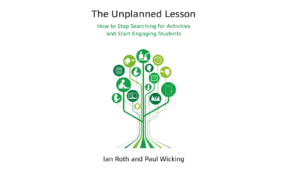A Book Review by Hall Houston
The Teacher Self-Care Manual is a brief but substantial introduction to self-care, specifically written for teachers.
Palmer makes it clear in the book’s introduction that teachers often live stressful lives, which can adversely affect the teacher, which can consequently have an impact on the students, administration, and even the educational system.
Palmer shares her personal experience with burnout, where she left the teaching profession after 20 years of teaching ESL
In the first few pages of the book, Palmer articulates what is self-care, and why it’s essential for teachers. She explains that self-care is not “an indulgence,” but something that is highly important for avoiding burnout and “building emotional resilience.” She points out that changing one’s mindsets and habits are an essential part of developing self-care. Later in the book, she shares some useful ways of introducing self-care into one’s everyday life, without spending lots of time or money.
Palmer shares her personal experience with burnout, where she left the teaching profession after 20 years of teaching ESL. She was working at several community colleges, under part-time contracts, handling a wide range of duties such as recruiting students and hiring teachers. She describes her experience with burnout as “a long, slow, and painful burn like holding onto a rope in a game of tug-of-war where you can feel your hands slipping down the rope.” She wrote this book in order to help other teachers avoid burnout and develop some simple self-care strategies.
In the next section of the book, Palmer lists several hazards that teachers commonly face. These fall into three categories: hazards from students (for example, large classes or low motivation), hazards from your behavior (for example, perfectionism or lack of boundaries), and hazards from your environment (for example, teaching at more than one school or lacking a health care program).
This refers to the idea some educators have that spending countless hours in a row grading papers or staying up late at night planning lessons are things that teachers should be proud of
The second half of the book lists self-care mindsets and habits that can prevent stress and burnout.
Palmer defines a mindset as “an established set of attitudes.” She advocates that teachers rethink their everyday mindsets and replace negative mindsets with more positive ones. One mindset is titled “No More Badges of Honour.” This refers to the idea some educators have that spending countless hours in a row grading papers or staying up late at night planning lessons are things that teachers should be proud of. Palmer reminds the reader that we cannot do our best if we are tired and stressed out and encourages teachers to refrain from treating stressful, difficult work as a badge of honour.
The author recommends 10 habits that are excellent examples of self-care strategies. These include taking walks frequently, drinking water instead of coffee, and having a designated non-workday. She also includes a few quotes from teachers in various countries explaining what they do to relax and decompress.
In the book’s final pages, the author tackles additional issues, such as self-care for online teachers and information for administrations that wish to incorporate self-care strategies into their workplace.
Palmer has written a fantastic introduction to self-care for teachers. The book is short but contains enough information for teachers who want a clear and straightforward overview. The author includes several exercises to help the reader engage with the topic, including a self-care assessment, and a “best possible self-activity”, where teachers can imagine a version of themselves in the future. For readers who wish to learn more about self-care, the book has an extensive bibliography, not to mention links to some useful sites such as the VIA Character Strengths Survey and the Maslach Burnout Inventory.
I would recommend this book for any teacher who has high levels of stress and might be experiencing burnout. Palmer has done a terrific job of explaining self-care, justifying its’ significance, and providing useful tips that can be done easily in everyday life.




